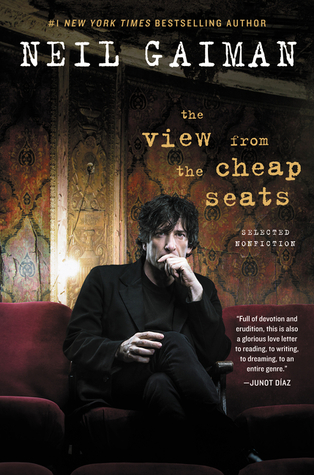 Down the Rabbit Hole: Curious Adventures and Cautionary Tales of a Former Playboy Bunny by Holly Madison
Down the Rabbit Hole: Curious Adventures and Cautionary Tales of a Former Playboy Bunny by Holly MadisonMy rating: 3 of 5 stars
So Hugh Hefner is a dirty old creep. Raise your hand if that surprises you - that an 80-year-old man who dates multiple blond 20-somethings at the same time is at all immature, controlling, or predatory. No one? Okay then.
Holly Madison has a lot to tell in her tell-all, and almost no one is spared her critical eye. She knows we're reading to get the dirt, and she serves it up by the spadeful. Madison paints herself as an fairly passive innocent swept up into the Playboy lifestyle, aspiring to a cover of her own and centerfold spread. Considering that her entire career has sprung from seven high-profile years at the Playboy mansion (and starring in The Girls Next Door), this is definitely biting the hand that fed her.
Still, there are some great revelations here. Madison writes that "Hef holds the Guinness Book of World Records for largest scrapbook collection at over 2,000 volumes"? According to Madison, Hefner compulsively records everything, writing about himself in third person and grading Polaroids of every woman who enters the mansion.
And "People may find it surprising that Hugh Hefner is nothing more than a tenant renting his room at the mansion, but that's exactly how it is." He rents rooms for each girlfriend, too, except for his "main" one, who lives in his room without privacy of her own. He doesn't have to pay for unoccupied rooms. And you bet each woman knows exactly the price he pays to keep her by his side.
Madison talks about the mansion's many schemers, an international prostitution ring, the photo shoots, and the less-than-glamorous realities of catering to Hugh Hefner's tastes. (Don't try wearing red lipstick, apparently.)
It won't take you long to read this memoir, and the true "rabbit hole" for me was looking up the names and backstories of the people Madison mentions in passing. Just don't use a work computer to do it! The second half of the book dealing with Madison's post-Playboy career is much less bizarrely fascinating than the first (and again, no surprises in her assertions that ex-boyfriend Criss Angel is also a turd).
Hefner, unfortunately, is a lasting part of American culture, one that won't seem to go away. While I find his lifestyle repellent, I also don't believe in slut-shaming the ambitious young women who see his bedroom as a ticket to fame and fortune. It's pure poetic justice when users glom onto each other. Though the women of Playboy are incredibly young in comparison to the Playboy editor (born in 1926!), he isn't a pedophile. No one comes out of the deal smelling like a rose, and there are countless stories told by his former girlfriends and Playmates.
Not a must-read, but certainly a fascinating look into a peculiarly American heart of darkness.
So Quotable:
"Hef was a notoriously lecherous 70-something man offering me Quaaludes that he referred to as 'thigh openers.' Are you kidding me? Why didn't I run for the nearest exit? It doesn't get much creepier than that." - 47
"Of course, to keep myself from really losing it, I was completely ignoring the fact that anyone who was part of an old man's harem and treated like a brainless idiot would be depressed." - 156
"We were like a typical old married couple. The only difference was, only one of us was actually old." - 175
"Just as I had been, seven years earlier, Crystal Harris was 22, thin, blond, a bit plain, and so much shy." - 232
To clarify, this is the "plain" Crystal Harris (later Crystal Hefner):

"Everything else that came from [the Playboy mansion] was laced with darkness, a hefty price tag, or an eventual knife in the back." - 322




















